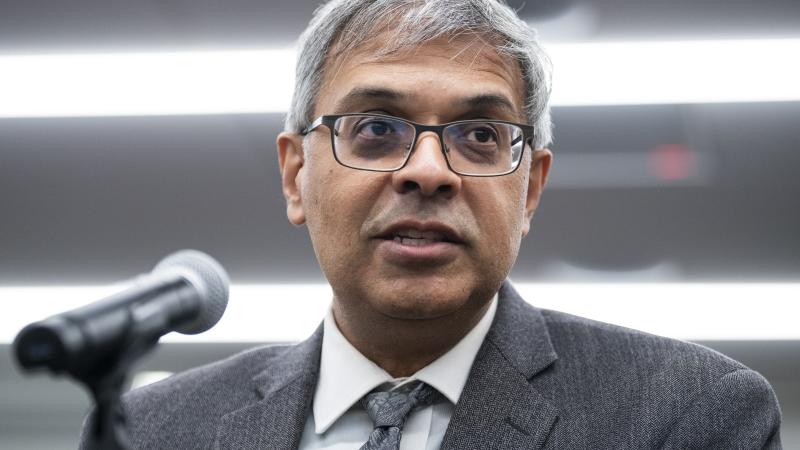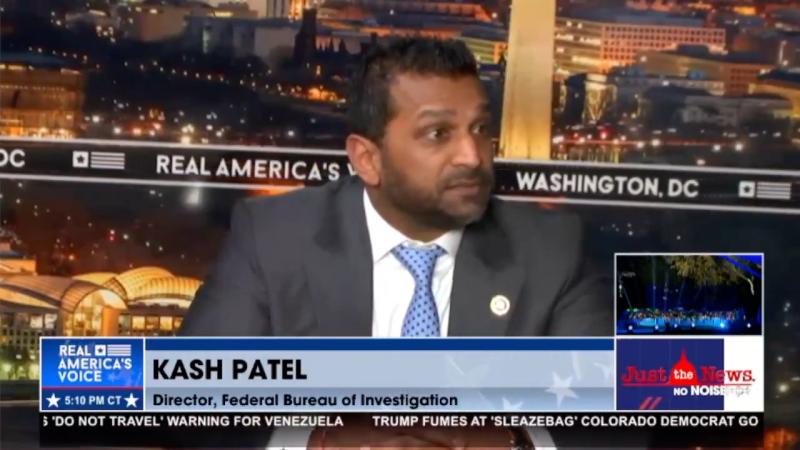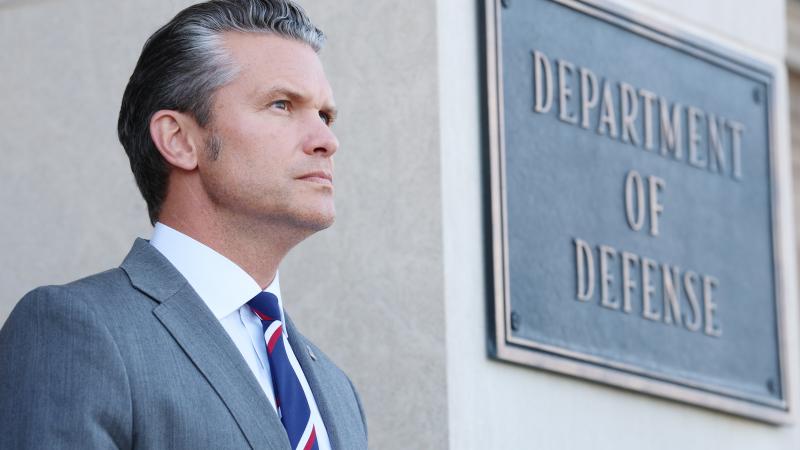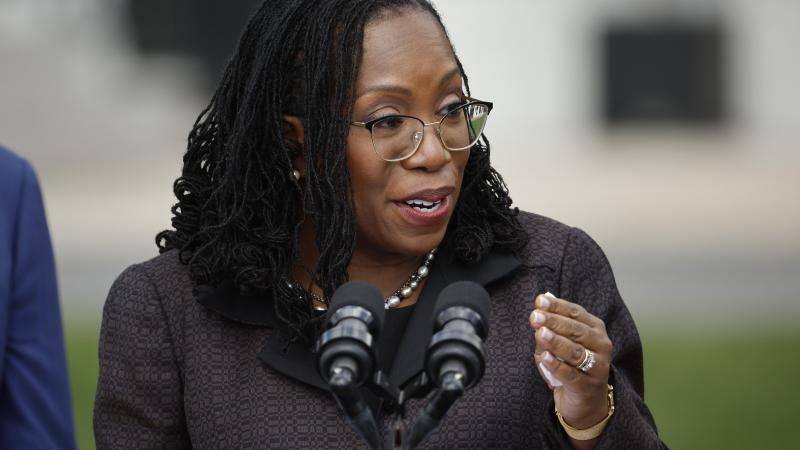ACLU sues to block Seattle ballot initiative overhauling homelessness response
City has been struggling to find solutions to house 11,000 homeless residents and end a crisis it first declared in 2015.
A proposed Seattle charter amendment clearing homeless camps from public spaces and mandating affordable housing has drawn a lawsuit from housing advocates who allege it's illegal.
The American Civil Liberties Union of Washington joined the Seattle/King County Coalition on Homelessness and the Transit Riders Union in a lawsuit accusing the divisive "Compassion Seattle" charter amendment as skirting state law as well as the local initiative process.
"Compassion Seattle" or Charter Amendment 29 is a proposal that would see the city shore up 2,000 homeless shelter beds or permanent housing units within a year after its unspecified effective date. It would also see the city sweep homeless encampments from all "parks, playgrounds, sports fields, public spaces and sidewalks." The charter amendment, which requires Seattle to spend 12% of its annual general fund on homelessness, offers no clue about how it would all be paid for before its provisions sunset in 2028.
The charter amendment was greenlighted for the Nov. 3 ballot on Aug. 2 after a unanimous vote by the Seattle City Council and turning in around double the needed signatures to the King County Elections office.
According to the joint lawsuit filed in King County Superior Court on Wednesday, Compassion Seattle falls "outside of the scope" of the local initiative process. Its plaintiffs allege the amendment's six-year lifespan violates the five-year updates to countywide homelessness plans required under state law. It also alleges that Compassion Seattle's waiving zoning codes to set up shelters would violate local initiative law and legal precedent bestowing legislative powers to the government.
"While Plaintiffs agree with some of CA 29's purported goals, these goals cannot be advanced by the local initiative process," the lawsuit states. "Electioneering and soundbites are neither an appropriate nor a legal method for addressing a complex and evolving regional crisis."
Finally, the lawsuit raises concerns that Compassion Seattle would tie the hands of Seattle and King County's joint Regional Homelessness Authority overseeing a host of job training and youth shelters. As plaintiffs claim, allowing homelessness responses to be decided through local initiatives would "open a floodgate to local initiative and referenda on homelessness," criminalizing or delaying homelessness responses.
The lawsuit lists Compassion Seattle's political action committee and Julie Wise, in her official capacity as King County Elections Director, as defendants. It seeks injunctive relief from the courts to invalidate the amendment from the fall ballot.
Compassion Seattle's political action committee rebuffed the lawsuit's allegations in a statement on Wednesday, claiming its grievances represented a "small group of activists." It contends there are no other solutions to housing the city's 11,000 homeless residents and ending the homelessness crisis it declared in 2015.
"Our opponents would prefer we maintain this status quo, continue ineffective policy and ultimately do nothing to address voters's number one issue, one that is costing taxpayers more today than ever before," the statement read. "Enough is enough."
The charter amendment is backed by one-time Seattle Mayor Tim Burgess, former King County Executive Ron Sims and Goodman Real Estate CEO George Petrie, among others.
Compassion Seattle is promising to become a defining issue in the city's mayoral race this year. According to Seattle's Ethics and Elections Commission, its committee has raised more than $1 million from 311 donors to date. Most of that money, or about 55%, has come from the city's most affluent neighborhoods of Magnolia and Queen Anne, among others.
Seattle's two leading candidates for mayor, former Seattle City Council President Bruce Harrell and his successor, Lorena González, have represented the divide on the charter amendment. Harrell, who has supported expanding the Seattle Police Department's ranks, has voiced his full support for it. González remains opposed to it as someone who voted to end police sweeps of homeless camps in 2020.
Based on current vote tallies, both candidates will likely advance to the general election. Should Compassion Seattle be approved by voters, it may fall to Harrell or González to implement one of Seattle's most divisive laws to date.
A proposed Seattle charter amendment clearing homeless camps from public spaces and mandating affordable housing has drawn a lawsuit from housing advocates who allege it's illegal.
The American Civil Liberties Union of Washington joined the Seattle/King County Coalition on Homelessness and the Transit Riders Union in a lawsuit accusing the divisive "Compassion Seattle" charter amendment as skirting state law as well as the local initiative process.
"Compassion Seattle" or Charter Amendment 29 is a proposal that would see the city shore up 2,000 homeless shelter beds or permanent housing units within a year after its unspecified effective date. It would also see the city sweep homeless encampments from all "parks, playgrounds, sports fields, public spaces and sidewalks." The charter amendment, which requires Seattle to spend 12% of its annual general fund on homelessness, offers no clue about how it would all be paid for before its provisions sunset in 2028.
The charter amendment was greenlighted for the Nov. 3 ballot on Aug. 2 after a unanimous vote by the Seattle City Council and turning in around double the needed signatures to the King County Elections office.
According to the joint lawsuit filed in King County Superior Court on Wednesday, Compassion Seattle falls "outside of the scope" of the local initiative process. Its plaintiffs allege the amendment's six-year lifespan violates the five-year updates to countywide homelessness plans required under state law. It also alleges that Compassion Seattle's waiving zoning codes to set up shelters would violate local initiative law and legal precedent bestowing legislative powers to the government.
"While Plaintiffs agree with some of CA 29's purported goals, these goals cannot be advanced by the local initiative process," the lawsuit states. "Electioneering and soundbites are neither an appropriate nor a legal method for addressing a complex and evolving regional crisis."
Finally, the lawsuit raises concerns that Compassion Seattle would tie the hands of Seattle and King County's joint Regional Homelessness Authority overseeing a host of job training and youth shelters. As plaintiffs claim, allowing homelessness responses to be decided through local initiatives would "open a floodgate to local initiative and referenda on homelessness," criminalizing or delaying homelessness responses.
The lawsuit lists Compassion Seattle's political action committee and Julie Wise, in her official capacity as King County Elections Director, as defendants. It seeks injunctive relief from the courts to invalidate the amendment from the fall ballot.
Compassion Seattle's political action committee rebuffed the lawsuit's allegations in a statement on Wednesday, claiming its grievances represented a "small group of activists." It contends there are no other solutions to housing the city's 11,000 homeless residents and ending the homelessness crisis it declared in 2015.
"Our opponents would prefer we maintain this status quo, continue ineffective policy and ultimately do nothing to address voters's number one issue, one that is costing taxpayers more today than ever before," the statement read. "Enough is enough."
The charter amendment is backed by one-time Seattle Mayor Tim Burgess, former King County Executive Ron Sims and Goodman Real Estate CEO George Petrie, among others.
Compassion Seattle is promising to become a defining issue in the city's mayoral race this year. According to Seattle's Ethics and Elections Commission, its committee has raised more than $1 million from 311 donors to date. Most of that money, or about 55%, has come from the city's most affluent neighborhoods of Magnolia and Queen Anne, among others.
Seattle's two leading candidates for mayor, former Seattle City Council President Bruce Harrell and his successor, Lorena González, have represented the divide on the charter amendment. Harrell, who has supported expanding the Seattle Police Department's ranks, has voiced his full support for it. González remains opposed to it as someone who voted to end police sweeps of homeless camps in 2020.
Based on current vote tallies, both candidates will likely advance to the general election. Should Compassion Seattle be approved by voters, it may fall to Harrell or González to implement one of Seattle's most divisive laws to date.
















